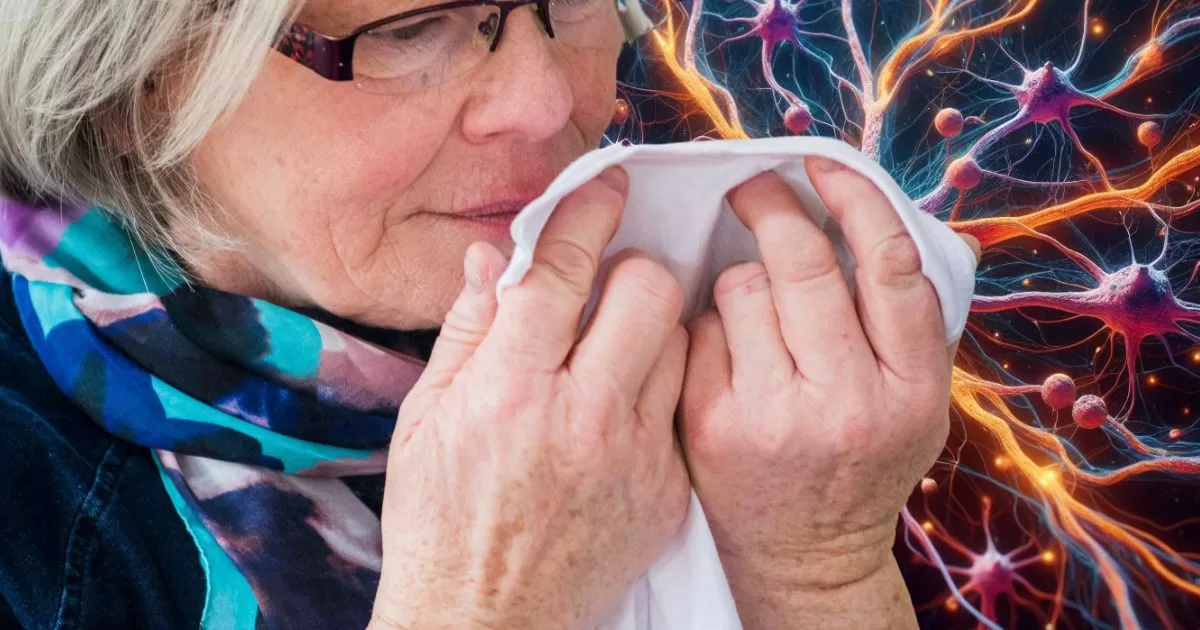Japanese tradition has a particular time period for the distinct musty odor that always accompanies getting older our bodies – kareishu or “old people smell.” As individuals get older, their physique chemistry adjustments, which ends up in a change of their private aroma no matter hygiene practices. This phenomenon is so well-known that the Japanese got here up with a time period to explain this widespread side of getting older.
Kareishu comes from a buildup of 2-nonenal, a chemical compound that will increase naturally within the physique as we develop previous. The origins of the odor could be traced to the sebaceous glands in pores and skin, which produce extra 2-nonenal over time. Even fastidious aged individuals can not wash away kareishu—it’s an integral a part of the getting older course of.
So what does kareishu really odor like? Many describe it as musty, stale, grassy or waxy. It conjures up scents present in previous books and newspapers. To the Japanese, kareishu smells like an previous particular person’s house, triggering nostalgic reminiscences of grandparents’ homes.
Distinct Odor of Parkinson’s Disease
Kareishu could also be a traditional signal of getting older, however scientists are discovering that particular odors may also be indicative of sure illnesses. Smells emanating from human breath, pores and skin and bodily fluids provide clues into medical circumstances brewing inside.
Dogs have already confirmed adept at sniffing out most cancers and different illnesses from human odor alone. One lady with an awfully acute sense of odor is exhibiting the identical potential. Meet Joy Milne, a Scottish lady who can odor Parkinson’s illness years earlier than signs even come up.

Milne first detected a definite odor on her husband Les practically a decade earlier than he was recognized with Parkinson’s at age 45. She describes the early scent as intensifying over time right into a yeasty, greasy and metallic odor that reminded her of nursing houses.
After attending a Parkinson’s help group assembly years later, Milne had an epiphany – the musky odor she smelled on her husband was current on the opposite individuals with Parkinson’s there as nicely. She might discern totally different levels of the illness based mostly on scent alone. Milne introduced her commentary to scientists, who devised an experiment confirming her unbelievable potential.
By sniffing the worn t-shirts of research individuals, Milne recognized these with Parkinson’s with unbelievable accuracy. She even flagged a supposedly wholesome man as having the illness months earlier than his analysis. Clearly, Milne might detect Parkinson’s within the earliest levels by scent.
Her supernatural sniffer has since pinpointed these with different circumstances like Alzheimer’s, tuberculosis and most cancers as nicely. Thanks to Milne’s eager nostril, researchers now know that distinct biomarkers exist in pores and skin secretions nicely earlier than diagnoses happen.
Milne’s present is unlocking mysteries in regards to the pre-clinical phases of illnesses. Identifying these markers early on can revolutionize analysis and therapy down the road. One day, a easy pores and skin swab might let medical doctors display screen for impending Parkinson’s years forward of time when prevention measures work finest.
They could appear fully unrelated, however the distinctive odors of kareishu and sure illnesses each provide perception into the chemical substances at work inside our altering our bodies. Kareishu represents getting older whereas the scent Milne acknowledges indicators Parkinson’s particularly. Her nostril is main science to non-invasive early detection methods that may save lives.
Who knew probably the most unassuming human sense might have a lot to show us? Research continues on decoding the olfactory markers which will sooner or later predict vulnerability to advanced, devastating sicknesses. The inspiring work of Milne and scientists confirms there may be a lot left to grasp about how smells replicate our well being – each in getting older and illness.


